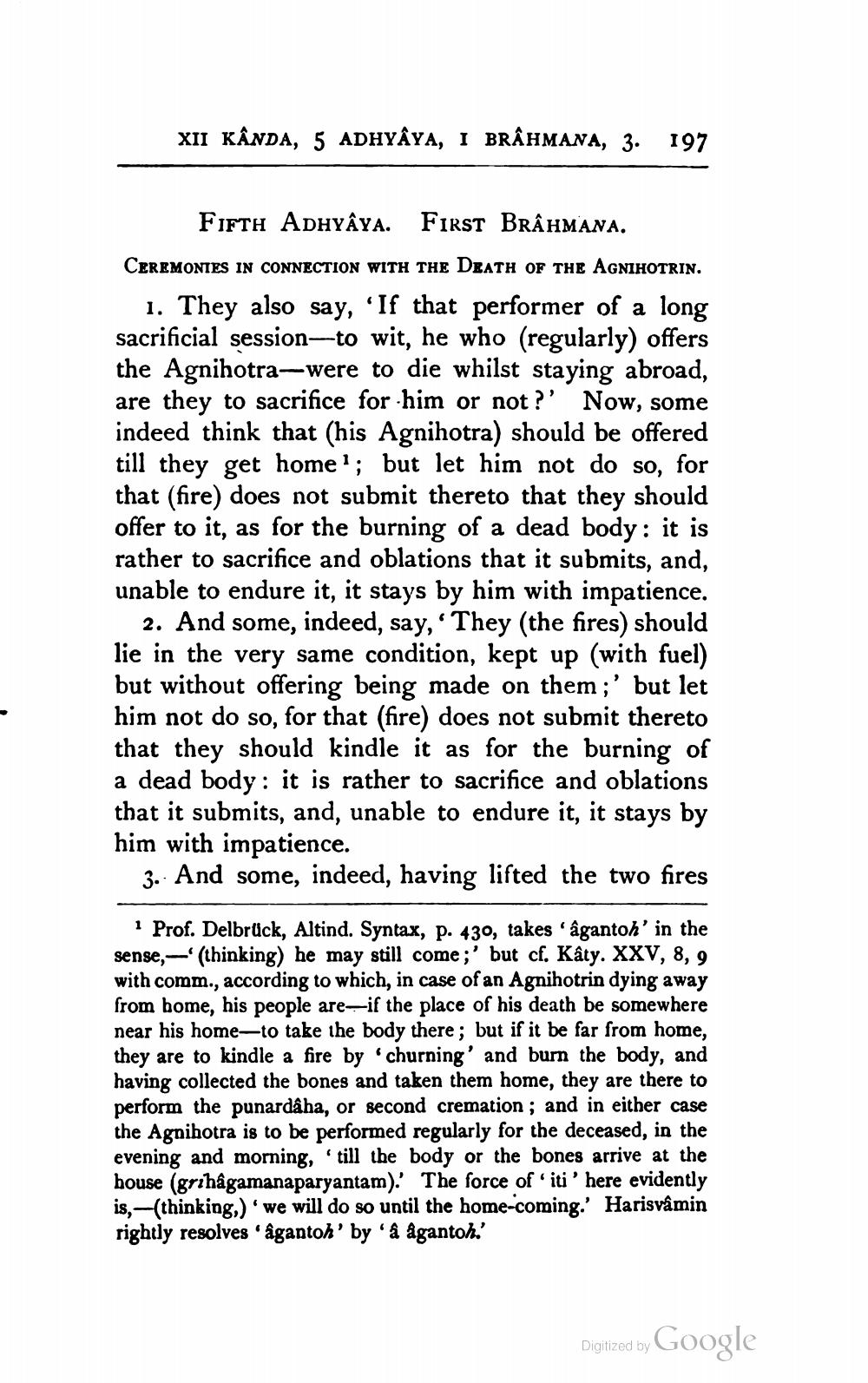________________
XII KÂNDA, 5 ADHYÂYA, I BRÂHMANA, 3. 197
FIFTH ADHYAYA. FIRST BRÂHMANA. CEREMONIES IN CONNECTION WITH THE DEATH OF THE AGNIHOTRIN.
1. They also say, 'If that performer of a long sacrificial session-to wit, he who (regularly) offers the Agnihotra-were to die whilst staying abroad, are they to sacrifice for him or not?' Now, some indeed think that (his Agnihotra) should be offered till they get home?; but let him not do so, for that (fire) does not submit thereto that they should offer to it, as for the burning of a dead body: it is rather to sacrifice and oblations that it submits, and, unable to endure it, it stays by him with impatience.
2. And some, indeed, say, 'They (the fires) should lie in the very same condition, kept up (with fuel) but without offering being made on them;' but let him not do so, for that (fire) does not submit thereto that they should kindle it as for the burning of a dead body: it is rather to sacrifice and oblations that it submits, and, unable to endure it, it stays by him with impatience.
3. And some, indeed, having lifted the two fires
? Prof. Delbrück, Altind. Syntax, p. 430, takes 'âgantoh' in the sense, —' (thinking) he may still come;' but cf. Kâty. XXV, 8, 9 with comm., according to which, in case of an Agnihotrin dying away from home, his people are-if the place of his death be somewhere near his home to take the body there; but if it be far from home, they are to kindle a fire by churning' and burn the body, and having collected the bones and taken them home, they are there to perform the punardâha, or second cremation ; and in either case the Agnihotra is to be performed regularly for the deceased, in the evening and morning, till the body or the bones arrive at the house (grihâgamanaparyantam). The force of iti' here evidently is,- (thinking,) 'we will do so until the home-coming.' Harisvâmin rightly resolves 'ågantoh' by 'â agantoh.'
Digitized by Google




